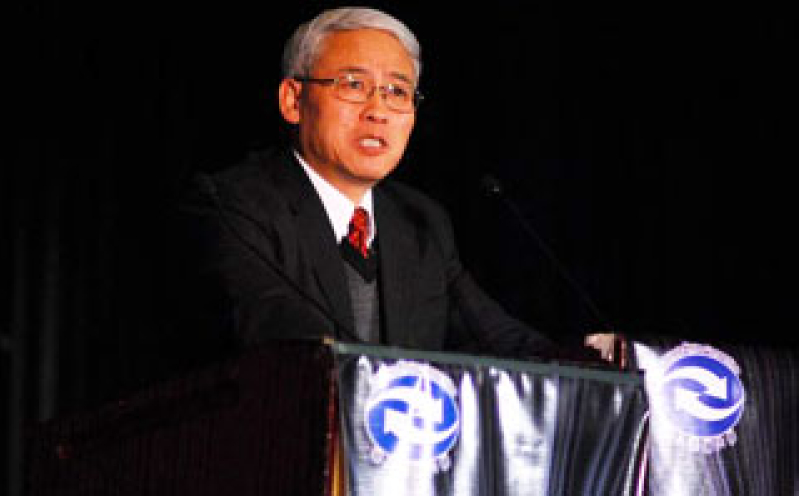
“I truly find that the traditional methods of gospel proclamation are too ineffective. In today technological advancement, there are many new ways of spreading the gospel waiting for us to discover and utilize…..” said Rev. Zhi-Ming Yuan at the Chinese Mission Conference held days ago.
Yuan urged the pastors, ministry leaders, and believers to break down their traditional thought shackles and courageously make use of mass media to spread the gospel.
Why is it that the Chinese churches avoid using mass media to spread the gospel? Giving the example of Jesus, Yuan said that Jesus always goes to places where there are the most number of people, uses the most effective means to proclaim the good news. In the 21st century, where then do most people gather and what is the most effective way of reaching them? The answer is media, he answered. There are infinite possibilities if the Chinese churches use the media today to spread the gospel.
Founded by Yuan, China Soul Association is one of the earliest and few Christian ministries that utilize mass media for gospel proclamation. It has produced a series of widely-received documentary and T.V. series, namely the “China’s Confession”, “The Cross – Jesus in China”, “The Gospel”, and “Beyond”, and others. These films have stirred up a popular response in overseas and within China. “The Gospel” has been translated into 16 different languages, which have been used to lead many to the Christian faith.
Not only has these films brought the gospel to the Chinese in overseas or in mainland China, they have also shown the Chinese churches the advantages and strengths of using mass media to spread the gospel. Yuan sincerely hopes that the Chinese churches can take his precious experiences to heart and follow in this step to proclaim the gospel in a much more efficient and rapid way.
Today’s media gospel mission among the Chinese churches has a long way to go despite its importance. He discovered that those churches and ministries that utilize mass media in their mission are the minorities, and they are mostly fighting the lone fight. Those with a strong team and with a certain operation scale are even fewer.
Address this, Yuan gave a concluding trend: looking back in history, the development of Christianity in the mass media, whether it is literature, broadcasting, television, movies, or the internet, has always been one step slower than secular powers. Speaking of movies, he said that when Christians began producing gospel movies the movie industry has already been dominated by Hollywood.
What is the actual cause that obstructs the development speed of media mission? The main reason, he answered, is the holding on of old and traditional thoughts of Christians.
Yuan shared a story of the former China’s house church patriarch Ming-Dao Wang. When Wang led a Sunday Service in Beijing, many people sitting in the back couldn’t hear Wang’s sermon since his voice is weak because of his old age. So someone installed a microphone. However, this utilization of technology caused an argument between the church staffs and the older Christians, who argued, “How can the voice of God be proclaimed through an electronic tool? It must be preached through the voice of man!”
After hearing this story, Yuan believes that there is no one today who would agree to those older Christian’s opinion in opposing the use of the microphone and may even laugh at their out-dated thoughts. However, for the Christians in that generation, microphone is a new type of media; if we were to reflect this viewpoint towards the Chinese churches in the 21st century, are we like those old Christians, treating newly emerged media with an attitude of not letting go the old.
Yuan hopes that this story can cause everyone to reflect deeply, to begin changing by opening one’s thoughts, and to courageously use today’s mass media to proclaim the gospel, allowing the gospel to be proclaimed at the speed of light.
[Editor's note: reporter Luke Leung translated this article.]







